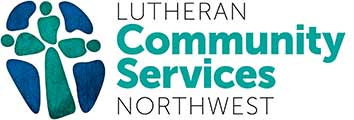Art through sewing helps trauma victims heal
She thought she was just taking another training that could help her clients. What Niloufar didn’t know is that she would learn so much about herself and the grief she carried from her previous life in Iran.
When LCS Northwest was invited by the Common Threads Project to become a partner organization, our Greater Puget Sound clinic staff thought it was a perfect match with their refugee and immigrant counseling work. The goal is to help clients recover from trauma and gender-based violence they experienced in their home countries.
The Common Threads model revives an ancient practice found in diverse cultures: Women come together to sew their stories onto cloth, and use the safety and support of that gathering to disclose unspeakable atrocities. Participants undergo a 6-month treatment process, which involves the creation of a story cloth, as well as traditional trauma therapy interventions.
Niloufar and her counseling colleague Faten Rashid joined a Common Threads therapy group to learn the process and eventually offer the therapy to LCS Northwest clients.
For Niloufar, creating art through sewing was new, but being creative was not. She is an accomplished artist in oil painting, clay and mixed media.
Participants had the opportunity to tell their personal stories, often for the first time in their lives and in the safety of being out of their home countries. Horrific stories of torture, sexual violence, isolation and psychological abuse are common.
In her story cloth, Niloufar portrayed the gender discrimination she knew in Iran before she came to the U.S. in 2017, as well as the experiences of her clients as immigrants and refugees. She joined LCS Northwest in May 2021.
“Despite the difficult things in my past, they barely compare to the atrocities my clients go through. I was separated from my family for five years. One of my clients was separated from her husband for 16. I wanted to give voice to the tremendous things they have overcome.”
“After the story cloth process, I definitely think differently about my past,” she said. “I feel a new sense of freedom.”
The process relies on the trust and safety of the women being together in a group, so today’s virtual class format is not ideal.
“We’re just waiting for COVID conditions to improve a bit more, so that an in-person class is safe for all the participants,” said Allison Taylor, Behavioral Health Clinical Director for the Greater Puget Sound district. “But we’re definitely getting close to being able to offer it. It’s an honor for our organization to be invited by the program’s founder to partner with them.”
Niloufar has begun work on a new story cloth about the use of the dress code as a tool of discrimination against women. “There is a growing movement in my country to end the requirements of wearing the compulsory hijab, and I want to support that.”
To learn more about Common Threads and see pictures from the course LCSNW staff participated in, go to the Seattle Common Threads page.

0 Comments